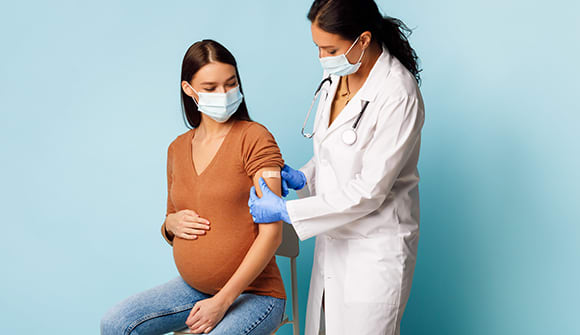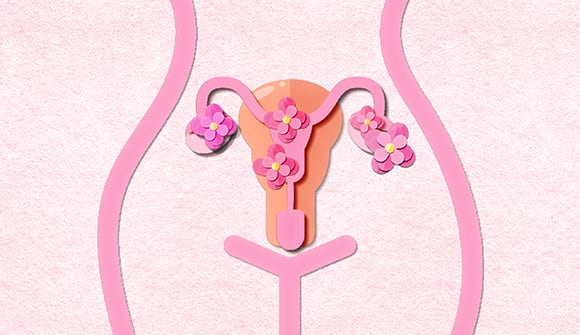Security blanket
How COVID-19 vaccines protect mom and baby, before and after birth.
Article Date:

Since the COVID-19 vaccine rollout, women have been wary about getting the shots while pregnant, breastfeeding or trying to conceive. However, growing amounts of research have led organizations like the Centers for Disease Control and Prevention (CDC), the American College of Obstetricians and Gynecologists (ACOG) and the Society for Maternal-Fetal Medicine (SMFM) to recommend COVID-19 vaccination for these women, citing its effectiveness at protecting the health and safety of mom, as well as unborn and new babies.
Kathryn Villano, MD, a maternal and fetal medicine specialist for Baptist Health, said research has shown that pregnant women are about three times as likely to be hospitalized with COVID-19 and three times more likely to need ICU care compared to non-pregnant women of similar age and medical history. The death rates for pregnant women with COVID-19 are also higher.
Dr. Villano said some of her patients remain skeptical, despite these recommendations and research. She answered some of the most common questions she’s received.
How do we know the vaccine is safe for pregnant women and breastfeeding moms?
“We have data from studies that have been done on 155,000 pregnant women who have received the vaccine so far,” Dr. Villano said. “It shows no increase in complications among women who were vaccinated compared to unvaccinated mothers.”
She noted that there is always risk of complications and adverse reactions with any vaccine, but in this case, it is minimal when compared to the benefits.
Can COVID-19 antibodies be passed from mother to baby in the womb?
Yes. Antibodies have been shown to pass from mother to baby via the placenta. The vaccine triggers the mother to produce COVID-19 proteins and antibodies that will fight them off. It’s a natural version of the monoclonal antibody treatments that some patients are receiving.
“COVID-19 mRNA vaccines don’t cross the placenta, but the antibodies do,” Dr. Villano said. “This offers baby temporary protection from COVID-19 that lasts into the first few weeks of life.”
Dr. Villano clarified this is not the same as the baby getting the vaccine, as children under 12 aren’t eligible to receive it yet. It just means the newborn will have a stronger immune response to COVID-19 if he or she gets infected in the early weeks of their life.
Will antibodies pass through breastmilk?
“Babies do get some antibody protection from breastmilk, but it’s not a tremendous amount,” Dr. Villano said. “Most of what they get in breastmilk is called an IgA antibody, which is not as strong as an IgG antibody that they would get through a vaccine or that their body would produce when fighting infection. IgA antibodies coat the baby’s throat, stomach and nasal passages to prevent infection.”
Is there an ideal time during pregnancy to get the vaccine?
“When we look at data from the CDC, there doesn’t seem to be any better or worse time to get vaccinated,” Dr. Villano said. “When you weigh the high benefits versus the low risks of the vaccine, getting vaccinated is definitely worth it. If you have any questions or want to discuss it further, I encourage you to have a conversation with your OB/GYN.”
At Baptist Health, we want to help keep our community informed about COVID-19. For more information about COVID-19 vaccines visit baptistjax.com/covid19vaccine.



